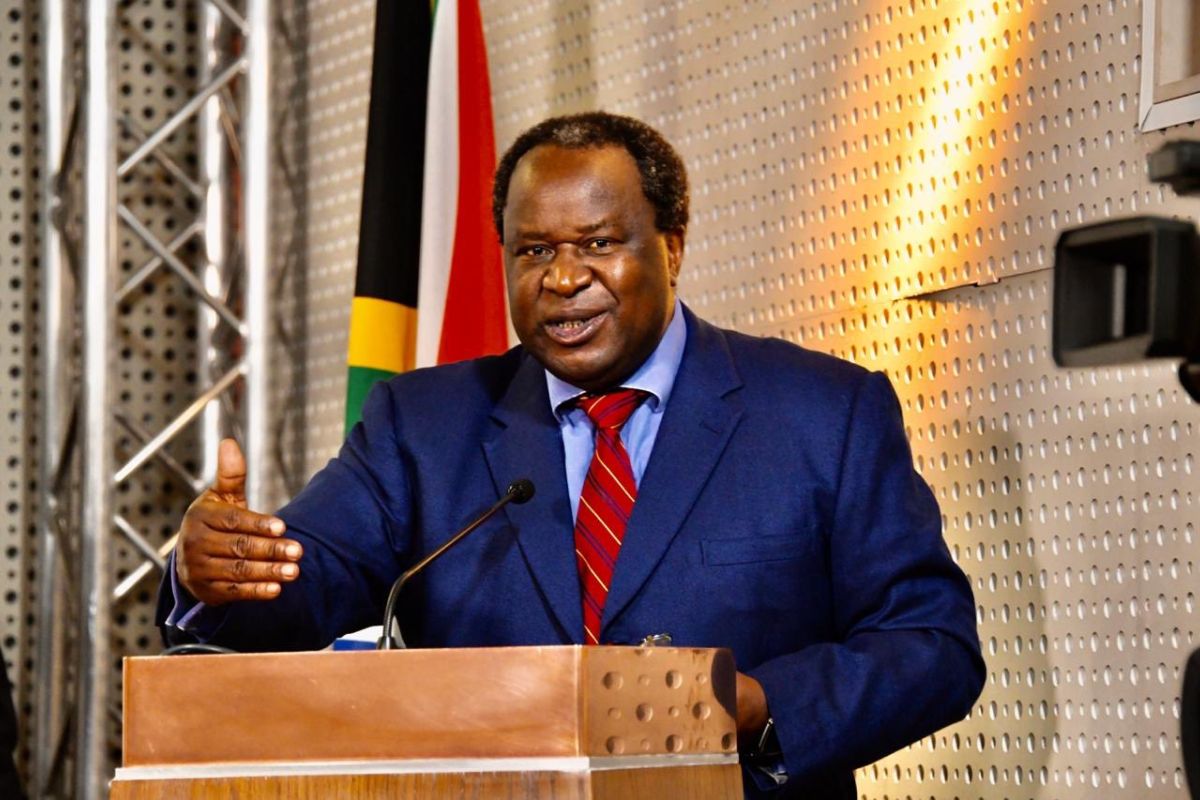Tito Mboweni, the first Black governor of South Africa’s central bank and later finance minister, who was praised for keeping inflation and public spending under control, died. He was 65.
The former governor died of a “short illness,” the South African Presidency announced late Saturday. Mboweni’s family claimed in a statement that he died in a Johannesburg hospital surrounded by loved ones.
Following the end of apartheid in 1994, Tito Mboweni served as labor minister in President Nelson Mandela’s cabinet. He was appointed central bank governor in 1999, where he served for a decade, and finance minister from October 2018 to August 2021.
“We have lost a leader and compatriot who has served our nation as an activist, economic policy innovator and champion of labor rights,” said South Africa’s president. “As governor and finance minister, he had a sharp focus on fiscal discipline and economic transformation.”
More about Tito Mboweni
Tito Mboweni was born on March 16, 1959, in Tzaneen, a town in northern South Africa. He moved into exile during apartheid and studied economics.
According to the central bank, he graduated from the National University of Lesotho with a Bachelor of Arts in economics and political science in 1985. In 1987, he received an MA in development economics from the University of East Anglia in England.
Mboweni served as Labor Minister for four years. During that period, he managed the implementation of numerous new laws to defend workers’ rights.
In response to complaints over the impact of the strong rand on South Africa’s export competitiveness, Tito Mboweni, in his capacity as governor of the central bank, battled to preserve the institution’s independence.
Moderate Approaches
Tito Mboweni gained a reputation as a monetary policy conservative. The year after he assumed the government, inflation targeting was implemented, and labor organizations opposed it. He was a staunch supporter of this policy.
According to the African National Congress, the political party that ruled South Africa uncontested from 1994 until it lost its parliamentary majority in this year’s elections, Mboweni played a crucial role in preserving price stability in a “fragile post-apartheid economy.” He was a part of the top decision-making body inside the ANC, the National Executive Committee.
Rebuilding South Africa’s foreign exchange reserves from less than $10 billion to nearly $40 billion was one of his notable accomplishments at the central bank.
The central bank stated on Sunday that “he was a passionate central banker and played a key role in building the SARB into the professional, formidable, and purposeful organization it is today.”
Following his tenure at the bank, Mboweni entered the private sector, working for Goldman Sachs Group Inc. as an adviser in South Africa. In addition, he chaired AngloGold Ashanti Ltd., the largest gold producer in the world at the time, and he was a member of other boards.
During Ramaphosa’s first term, Mboweni was named the finance minister. The president had promised to fight corruption and restore investor trust damaged during the nine scandal-plagued years of Jacob Zuma’s tenure.
According to the ANC, “he received extensive recognition both locally and internationally for his contributions in this space, which helped steer South Africa through economic turbulence.” “Despite having a short tenure, he oversaw the nation’s economic strategy during a crucial period of change after his predecessor’s departure.”
The Mboweni family promised to provide further information on his passing in the days to come.
Read more
New Gmail Security Alert: What the 7-Day AI Hack Means for Billions of Users
Supreme Court Denies Musk’s X Corp. Appeal in January 6 Case
Biggest Indian Industry leader, Ratan Tata, died at 86

Daisy Morgan is a dedicated business journalist known for her insightful coverage of global economic trends and corporate developments. With a career rooted in a passion for understanding the intricacies of the business world, Daisy brings a unique perspective to her writing, combining in-depth research with a knack for uncovering compelling stories. Her articles offer readers a comprehensive view of market dynamics, entrepreneurship, and innovation, aiming to inform and inspire professionals and enthusiasts alike.







